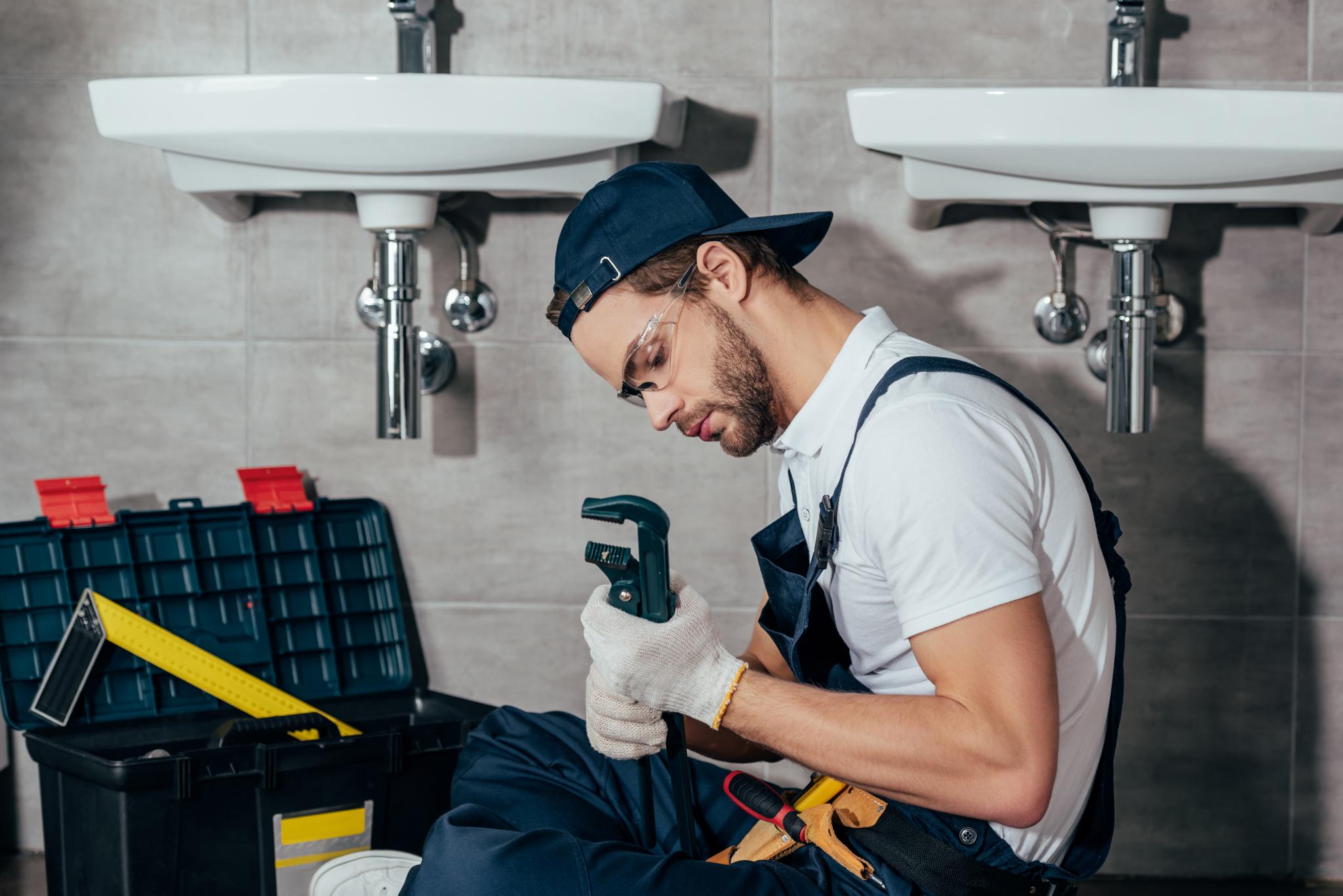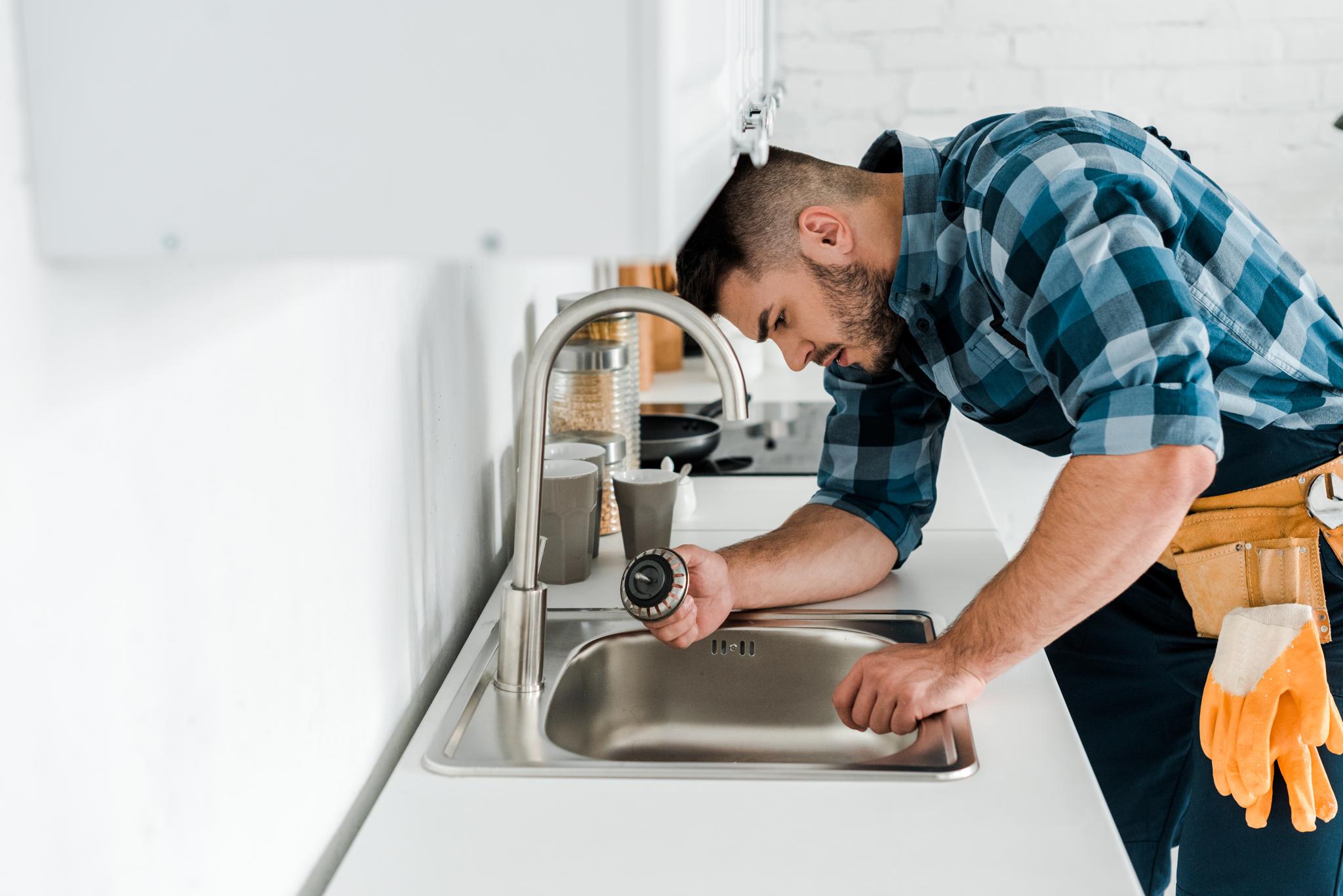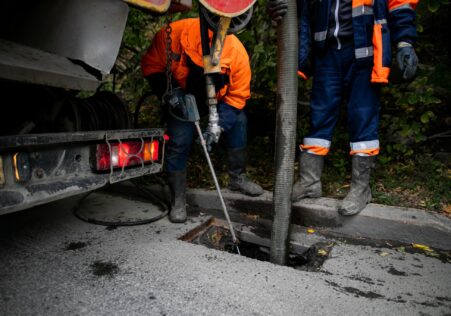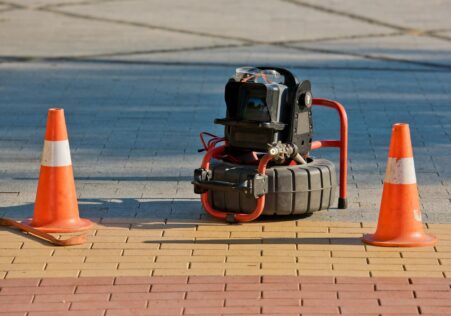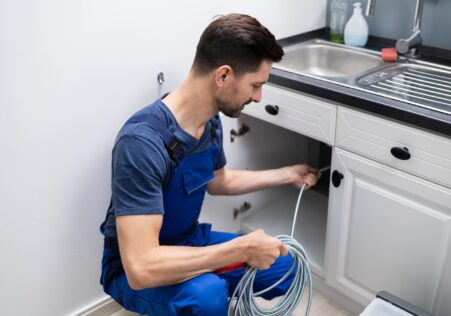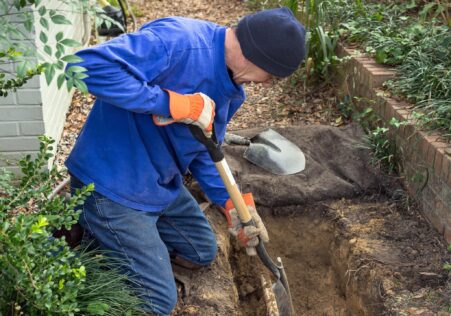How to Keep Your Drains Clean and Prevent Future Blockages
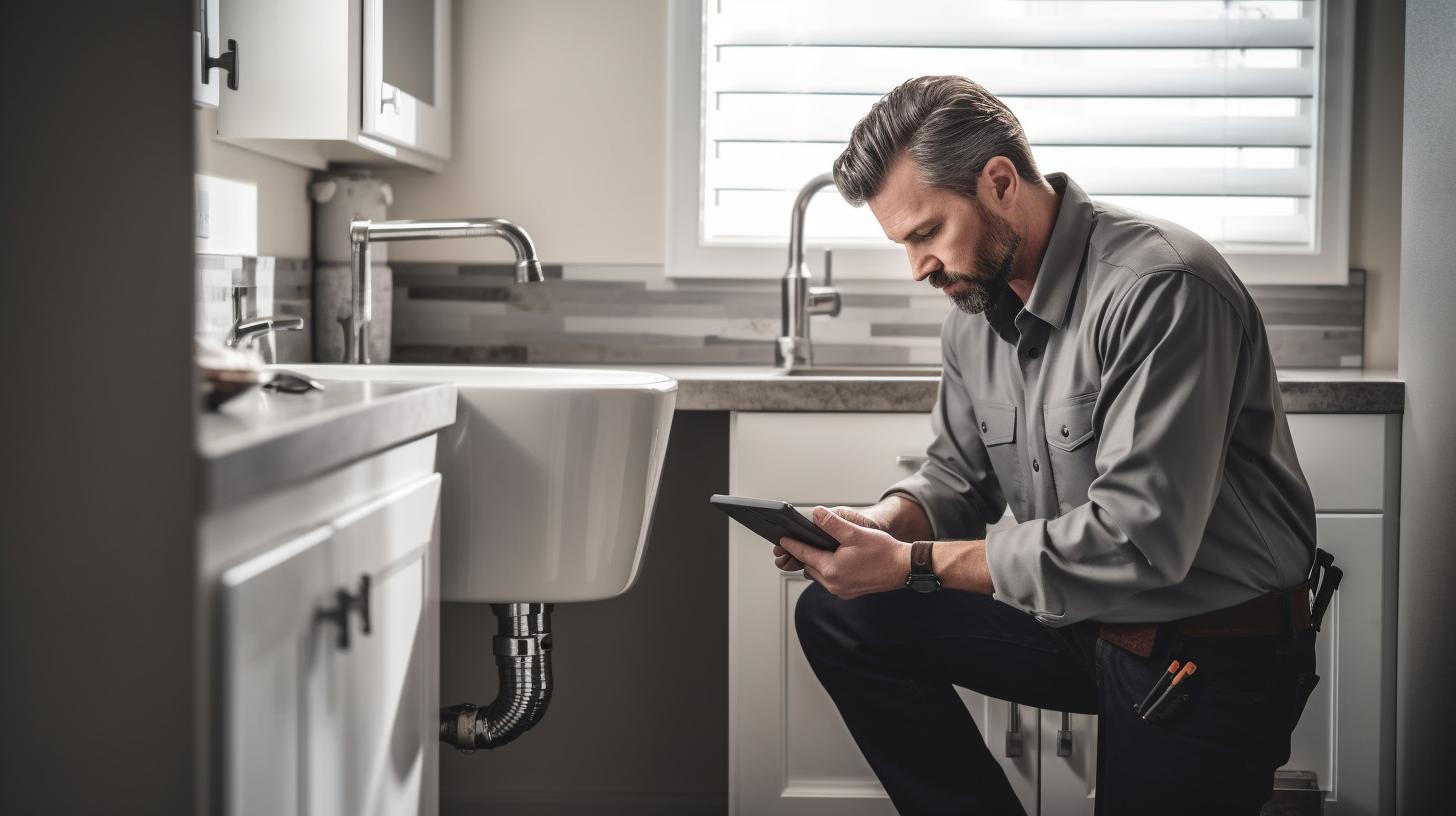
Are you tired of dealing with clogged drains in your home or office? Do you want to learn ways to prevent further blockages and maintain your drains’ cleanliness? Here, we will give you some suggestions and tricks to help you maintain clean drains. We will also provide reasons why it’s crucial to hire professionals like Melbourne Blocked Drains Plumber for the job.
Key Takeaways
- Common causes of blockages in drains are soap and hair accumulation, food waste stuck to grease buildup, toiletries being flushed down the toilet such as baby wipes or feminine hygiene products cotton swabs or floss and the growth of tree roots in pipes outside the house.
- Make use of a strainer or a hair catcher above the drain opening to prevent hair or food waste from running down the drain.
- Dispose of food waste properly by scraping food scraps into the compost bin or trash bag, instead of flushing them down the drain.
- Make sure you do regularly scheduled maintenance cleansing by pouring boiling water slowly into your sink, shower or tub drains at least once every week, when they’re uncluttered.
- Make a mixture of vinegar and baking soda, then add it to the drain opening to provide an easy method to remove the grease blockages that build up on the walls of sewer pipes that result in obstructions. Take 30 minutes to wait, then pour hot water into the drain.
- Contact Melbourne Blocked Drains Plumber for help with regular maintenance of the sewer systems, septic tanks or pipes in the outside of your home to ensure they are working effectively and efficiently.
- Don’t use drain cleaners with chemicals since they could damage the pipes over time and affect the environment.
- Beware of flushing non-decomposable products such as cotton swabs and paper towels and dental floss as well as feminine hygiene products into your toilet since this can result in expensive repairs to sewers or in septic tanks.
- Pay attention to abnormal smells emanating from drains, low drainage, gurgling sounds or any other unusual behavior that may indicate a blocked drain that requires immediate attention.
Common Roots of Drain Blockages
Before we get into the best practices and rules, it’s crucial to understand the reasons behind drain blockages to begin with. Here are a few of the common causes:
- The buildup of soap and hair in the bathroom drains
- Food waste stuck to grease buildup in kitchen drains
- Toiletries that are flushed down the drain like baby wipes cosmetic hygiene, dental floss or cotton swabs
- Tree roots growing into pipes that are outside the house
These causes can result in serious damage in the long run if not addressed. However, there are methods to take care of each issue and keep your drains running smoothly.
Dos
1. Use a hair catcher
A hair strainer or hair catcher fits neatly over your drain’s opening. It prevents food waste or hair from going down the drain. Be sure to wash them regularly.
2. Dispose of your kitchen garbage
Scrape food scraps into your compost bin or trash bag instead of rinsing them in the drain. Rinse dishes with hot water before washing.
3. Conduct regularly scheduled checks for maintenance cleaning
Every week, pour boiling water slowly down your sink, shower or tub drain openings when they’re fairly clear. This will stop substance accumulation from blocking the drain altogether.
4. Make use of baking soda and vinegar.
Mix equal parts vinegar and baking soda (usually half a cup each) then slowly pour it into the drain opening as an easy method of cleaning away the buildup forming on the sewer pipe’s walls which can cause obstructions. For 30 minutes, wait and pour hot water into the drain.
5. Get a professional to help you.
Hire a professional plumber like Melbourne Blocked Drains Plumber to perform regular maintenance of septic tanks sewer lines or pipes outside the house to ensure that they function properly and effectively.
Don’ts
1. Avoid using chemical drain cleaners.
Chemical drain cleaners can cause damage to pipes over time, and can may also be harmful to the environment. They can also pose a risk when used in conjunction with other cleaning products.
2. Do not flush items that aren’t decomposable into the toilet.
Avoid flushing non-decomposable items into your toilet such as paper towels, cotton swabs, dental floss or feminine hygiene products since they will not disintegrate naturally and instead cause costly repairs in sewers or septic tanks.
3. Don’t overlook warnings
If you experience unusual drainage smells, an infrequent drainage, sounds of gurgling or any other unusual behavior may indicate a clogged drain which needs immediate attention.
| Do’s | Don’ts |
|---|---|
| Use a strainer or hair catcher | Use chemical drain cleaners |
| Properly dispose of kitchen waste | Flush non-decomposable items down the toilet |
| Perform regular maintenance cleaning | Ignore warning signs |
| Use baking soda and vinegar | |
| Call a professional like Melbourne Blocked Drains Plumber for help |
Common Questions & Answers
How often should I scrub my drains?
It is recommended that you cleanse your drains at least every 6 months to 1 year. If you observe slow drainage or foul smells coming through your pipe, it’s best to act as soon as possible.
Are there any DIY ways to clean my drains?
There are numerous solutions at home that you can try for a quick fix, such as pouring boiling hot water down the drain using baking soda and vinegar or using a plunger. But, be careful with the substances and materials you pour down your drain and stay clear of anything that could cause damage or harm to the plumbing system.
How can I avoid future blockages in my drainage?
Regular maintenance of your plumbing system could aid in preventing future blockages. Beware of flushing foreign objects down the drain, regularly wash hair from shower drains, and use a strainer for the sink to catch food scraps before they go into the drain.
When should I contact a professional plumber?
When you’ve tried DIY solutions but you’re still experiencing slow-moving drains or clogs it is recommended that you call an expert plumber for more analysis as there could be some underlying issues that require to be addressed.
My drains keep becoming blocked This could be the sign of a larger problem?
Repeatedly clogged drains may indicate larger issues like tree roots that are infiltrating your pipes, or collapsed pipes in the plumbing system. In these instances it is recommended to call an experienced plumber like Melbourne Blocked Drains Plumber who can assess the problem properly and recommend the best way to proceed.
In conclusion, maintaining healthy drains is essential for any workplace or home. Implement these suggestions now to avoid future blockages and keep your drains flowing freely. Remember that professional assistance is just a call just a phone call away. For more information on our plumbing services like unblocking blocked drains, CCTV drain inspection, pipe relining and general plumbing maintenance call Melbourne Blocked Drains Plumber at # ###-###-#### or visit our website for more information. [(click here)] (https: //www. example.com/)
Additional Information
- Why CCTV Drain Inspection is a Cost-Effective Solution for Your Plumbing Needs
- Understanding CCTV Drain Inspection and the Benefits for Your Home
- Easy Measures to Find & Identify a Blocked Pipe
- Clearing Obstructed Drains: An Exhaustive Handbook for Plumbers
- CCTV Drain Inspection Technology: Detecting Corrosion in Sewer Pipes
- Don’t Get Caught Unprepared! What You Need to Do Before a CCTV Drain Inspection
- The Do's and Don'ts of Keeping Your Drains Free from Blockages
- CCTV Drain Inspections: A faster, Accurate and Effective Means of Identifying Root Issues in Drains
- Pipe Relining Unveiled: Everything to Expect from the Method
- Understanding the Technical Aspects of a CCTV Drain Inspection Report


